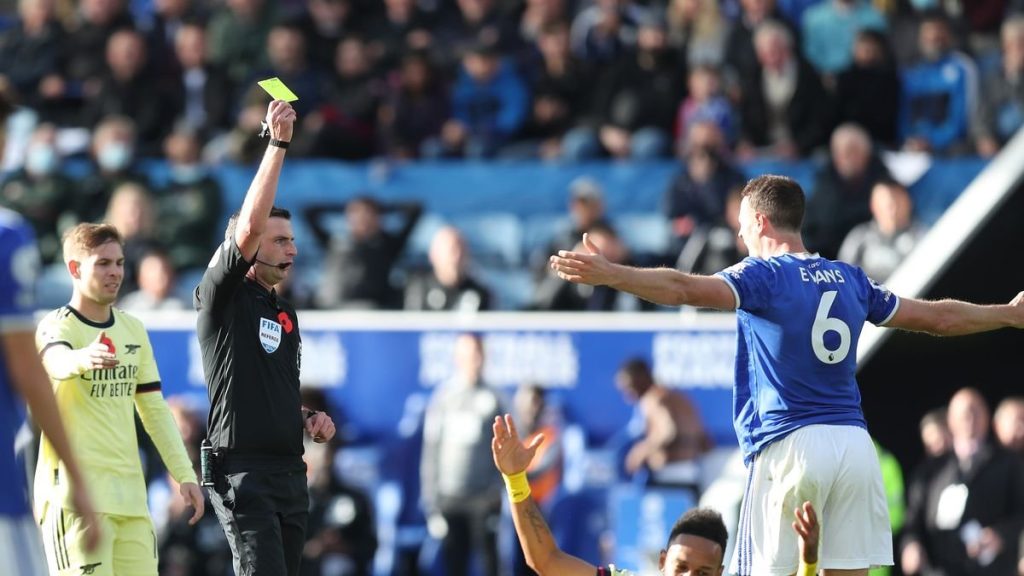Gameweek 10 was a great one for Chelsea who took advantage of their rivals slipping up to go clear on top of the league. For the VAR corner the real action came in three instances of teams denying clear goal scoring opportunities and the differing outcomes.
Our subjects for the week are Jonny Evans, Ezri Konsa, and Aymeric Laporte two of whom were sent off and one who received a yellow for very similar challenges.
Under Law 12 section 3, Denying a goal or an obvious goal-scoring opportunity is handled as follows:
Where a player denies the opposing team a goal or an obvious goal-scoring opportunity by a handball offence, the player is sent off wherever the offence occurs.
Where a player commits an offence against an opponent within their own penalty area which denies an opponent an obvious goal-scoring opportunity and the referee awards a penalty kick, the offender is cautioned if the offence was an attempt to play the ball; in all other circumstances (e.g. holding, pulling, pushing, no possibility to play the ball etc.) the offending player must be sent off.
The following must be considered:
- distance between the offence and the goal
- general direction of the play
- likelihood of keeping or gaining control of the ball
- location and number of defenders
In summary, if a player is clean through on goal, unless they are in the box it is a red card in all cases
The Incidents:
- The ball is flicked on and Wilfried Zaha is hauled down by Laporte as he is trying to reach the ball. Laporte is sent off.
2. A long ball is played and Pierre Emerick Aubameyang and Evans challenge each other for the ball, bounces and turns. Evans receives a yellow card.
3. West Ham launched a counterattack and Konsa brings down Jarrod Bowen at the edge of the box. He is initially given a yellow care which VAR upgrades to a red.
In all these cases, I believe a red card should have been given and in the Evans case it was a mistake from the referee. However, two things need to be mentioned. Aubameyang and Evans were the only players engaged in a physical battle before the foul. In the other cases the attacker was moving away from defender before first contact. This may have influenced the referee’s decision not to give a red and why VAR did not intervene as it was not clear and obvious.
The second was that in the opinion of the VAR team, Michael Oliver, had not made a clear and obvious error. It goes back to the subjectivity of VAR. What is clear and obvious for one VAR team will not be clear and obvious for one VAR team. Unless the same VAR team runs every game we will always have these discussions and we will never have a conclusive consensus.
